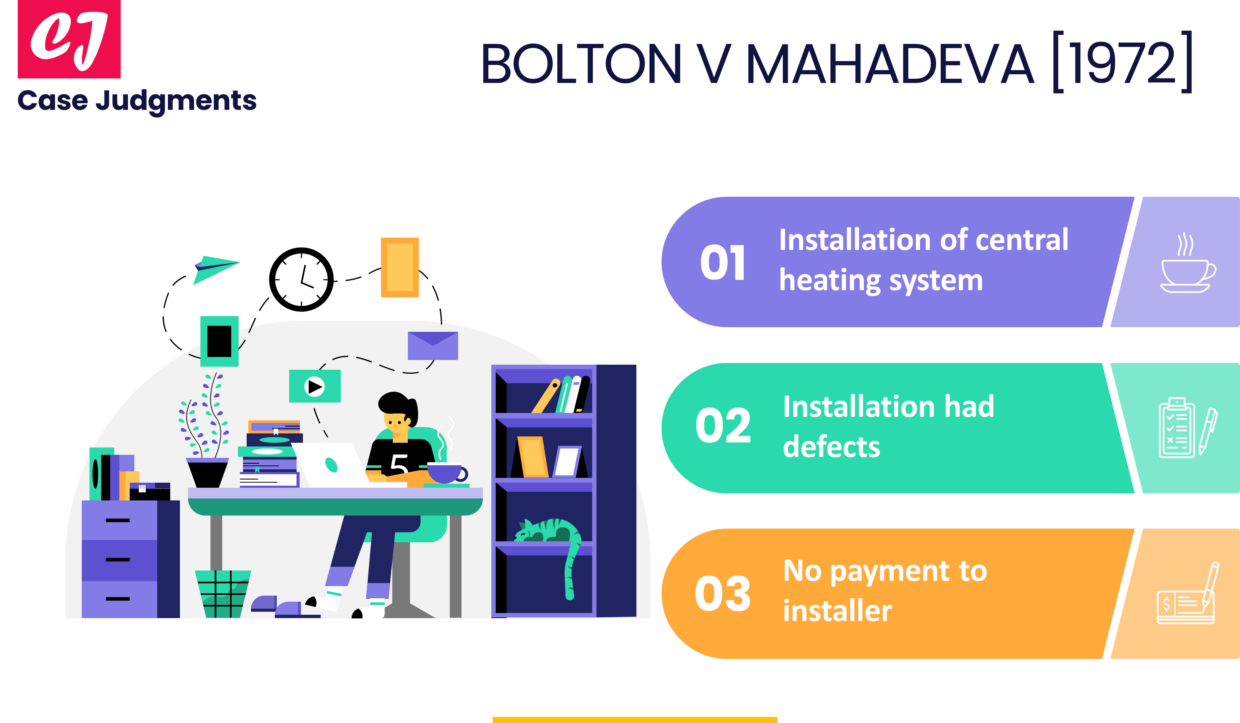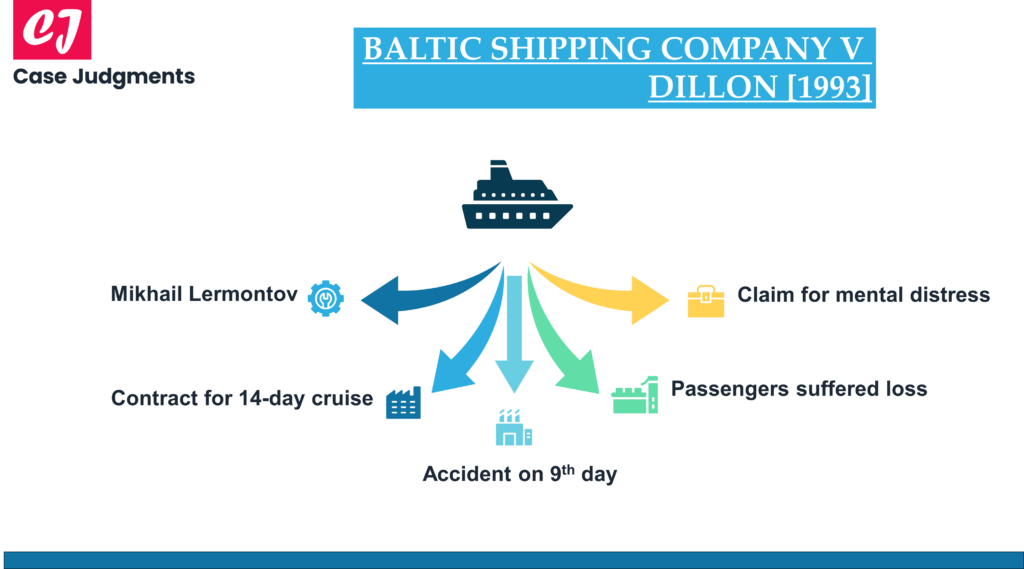
A Summary of Bolton v Mahadeva [1972]
The case of Bolton v Mahadeva [1972] is concerned with the concept of “substantial performance” in contract law. It says that completing the main obligations of a contract and achieving substantial performance is essential to be entitled to payment.
| Case name & citation: | Bolton v Mahadeva [1972] 2 All ER 1322; [1972] 1 WLR 1009 |
| Court and jurisdiction: | Court of Appeal (Civil Division), England and Wales |
| Decided on: | 13 April 1972 |
| Area of law: | Discharge by performance; substantial performance |
Facts of the case (Bolton v Mahadeva)
The claimant had contracted to install a hot water and central heating system in the defendant’s residence for a price of £560. However, there were many defects in the system’s installation. There were issues like fumes affecting the air in the living room, and deficiencies in maintaining the proper level of warmth in the house (the house was on average 10% less warm than it should have been). Overall, the cost to make rectifications was £174.50.
Issue
Whether the installer should be allowed to recover payment?
Judgment of the Court in Bolton v Mahadeva
Initially, at the first instance, the judge decided that the claimant was entitled to the agreed-upon price of £560, but that £174.50 should be deducted from the contract price due to the deficiencies that needed rectification. The defendant filed an appeal.
To this, the Court of Appeal concluded that there had not been a “substantial performance” of the contract. This means that the errors and deficiencies in the installation were serious enough to undermine the purpose of the contract and preclude the claimant from collecting payment. As a result, the claimant was not entitled to recover any money, and the defendant’s appeal was successful.
Despite the fact that the entire heating system had been installed, it failed to serve its primary purpose of heating the house effectively, and hence the installer was not permitted to recover.
Governing rule behind the decision
Substantial performance refers to a circumstance in which a party to a contract has fulfilled the main obligations under the contract, even if there are some minor flaws or deficiencies in its performance. In other words, the rule of substantial performance holds that the contract may be enforced where the performance is “substantial” and the amount payable corresponds to the price of the contract minus the cost of the deficiencies.
However, in case there are significant deficiencies in the performance of the contract that prevents the very purpose of the contract from being achieved, then the party responsible might not receive payment. It may not constitute “substantial performance.”
Nevertheless, it is important to note that contract law can be complex and can vary depending on jurisdiction and specific circumstances. Thus, taking advice from a qualified legal professional is recommended if one is dealing with such issues.
List of references:
- http://ndl.ethernet.edu.et/bitstream/123456789/8536/1/87.pdf
- https://fdvn.vn/wp-content/uploads/2019/12/luu-ban-nhap-tu-dong-3-1.pdf
- https://nashashibilaw.weebly.com/uploads/2/0/5/9/20597118/the_modern_law_of_contract.pdf
You might also like:
More from contract law:

